Where Did She Go?
Talking about grief to kids...
If you’re not familiar with my oeuvre, you may not know that I have spent a large part of the last decade talking about grief and death - mainly thanks to my excellent early academic training of having my dad die when I was a teenager. I started my podcast Griefcast in 2016, and throughout its seven year span, I interviewed nearly two hundred comedians, writers, actors, death doulas, palliative care doctors, child bereavement psychologists and generally all sorts of people who wanted to have open and honest conversations about their experiences of joining the grief club.
During my tenure as Queen of the grief community1, I was very lucky to be sent a myriad of books on grief, about grief, grief-adjacent, grief-inspired - and some of these were aimed at talking to kids about grief; there were a few heartfelt ones, but there was also a wealth of ‘rabbit is a bit ill actually, don’t worry about him now, he’s gone to live somewhere else!’, which, to be honest, I found really hard to stomach.
I am a bit obsessed with honesty, and yet I understand the loving urge to protect kids from upsetting things - but what irritated me, was the idea that ‘protection = avoidance of truth’. Death is just what happens, it’s what life is inevitably heading for. In lying to kids, or rather hiding the truth in plain sight behind forests, acorns and wildlife metaphors, what are we telling them? That death is simply the most frightening thing that can happen, and not an expected part of being alive. What lesson will they take from that? To fear illness? To avoid asking questions, or panic when they meet others that are grieving? So much of how we talk about death to children now, comes back to haunt us in later life when we are faced with adults who are ill equipped to have these conversations (having never had them or heard them when they were young.)
I also felt increasingly frustrated as someone who does have to explain where Grandpa is on a regular basis, that there weren’t enough straightforward stories to help me do it. It felt simply like something was missing.
So, when many years later, Hachette Childrens publishers asked me if I had any ideas for a picture book, I knew what it should be. A book for kids that didn’t lie, a picture book that spoke the truth; sensitively and carefully. That would allow parents to talk about death and grief in a way that wasn’t frightening, but could give the same clarity as when we’re asked what fire is made of, where Pluto is or why the grass is green …
Kids need answers about death, as much as adults do. I sincerely hope this book, with beautiful illustrations by the very talented Tom Percival, allows parents to provide some of the answers and explain some of the things we don’t have the answers too as well.
“I do know she loved us so much, and even though we can’t see her anymore, we can still feel that love.” ❤️
Where Did She Go? is available to buy now from all good bookshops, click here to purchase.
I am a picture book addict, to the point I have already considered what institution to pass on my hallowed library too, when my children eventually get fed up of books without pictures (luckily doesn’t seem like anyone is keen so far…). So, because I love me some recommendations at the end of a stack, here are some of my current emotional leaning faves, that if you haven’t read yet, will only enhance your bedtime routine even more.
The Paper Dolls - Julia Donaldson & Rebecca Cobb
Yes - I just said I’m not a fan of a metaphors in grief books, but if anyone can get away with it it’s the big JD. I think this works so well because she’s not talking directly about death, but allowing the idea that things don’t last forever and that’s ok, to creep in. We have our memories and they can shape us as much as the real thing. The beautiful illustrations from Rebecca Cobb, give it just enough energy and joy to move it away from being maudlin. Buy it here.
The Zebra’s Great Escape - Katherine Rundell & Sara Ogilvie
This is actually my favourite of Rundell’s kids books. She always writes in a very classic way, you sometimes feel you’re reading a contemporary of Carroll or Milne, and the old fashioned style works perfectly here to create an epic adventure about a young girl who helps a zebra rescue his parents back from the clutches of a collector. A bit sad, a bit beautiful, and longer than normal, so good for when you want a proper read before bed. Buy it here.
Terrible Horses - Raymond Antrobus & Ken Wilson-Max
This is my newest sad-but-lovely picture book, I picked it up by chance on a browse in Foyles, and it’s truly bloody brilliant. Simply written but with emotion pumping through it. It deals very sensitively with sibling rivalry (and cruelty) without skating away from the truth of how kids really feel about that relationship sometimes. An excellent one if you want to start opening up the conversation about how sometimes it’s hard to be a big/little brother/sister. Buy it here.
These are my top three emotional ones (at the moment)… if I get round to it, I'll do top funny ones, but until then, don’t be afraid to talk to them about the big things. It genuinely does get easier every time you do.
I have since abdicated, important to make sure your rule ends before you die, we can’t take grief on top of grief.

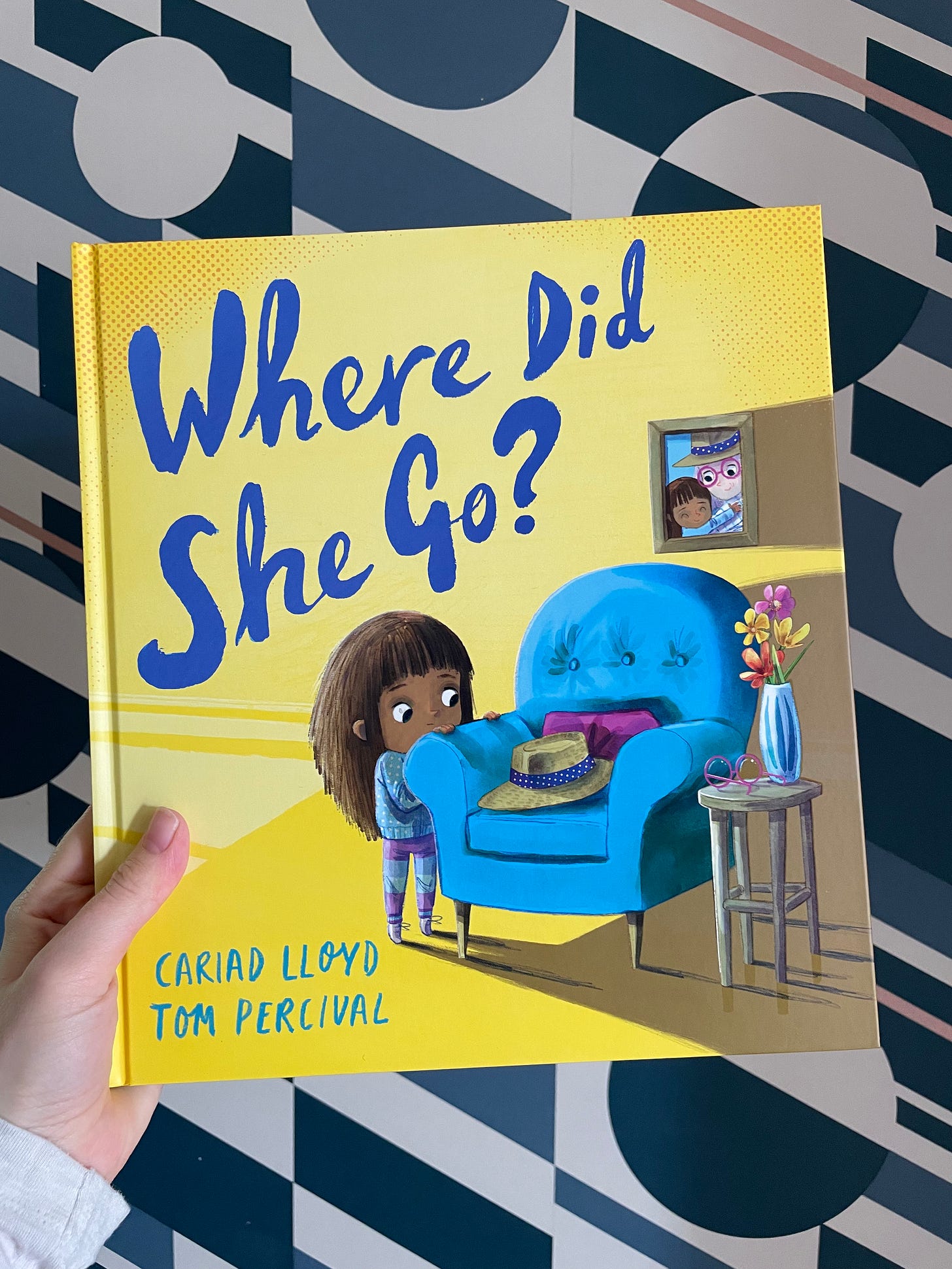
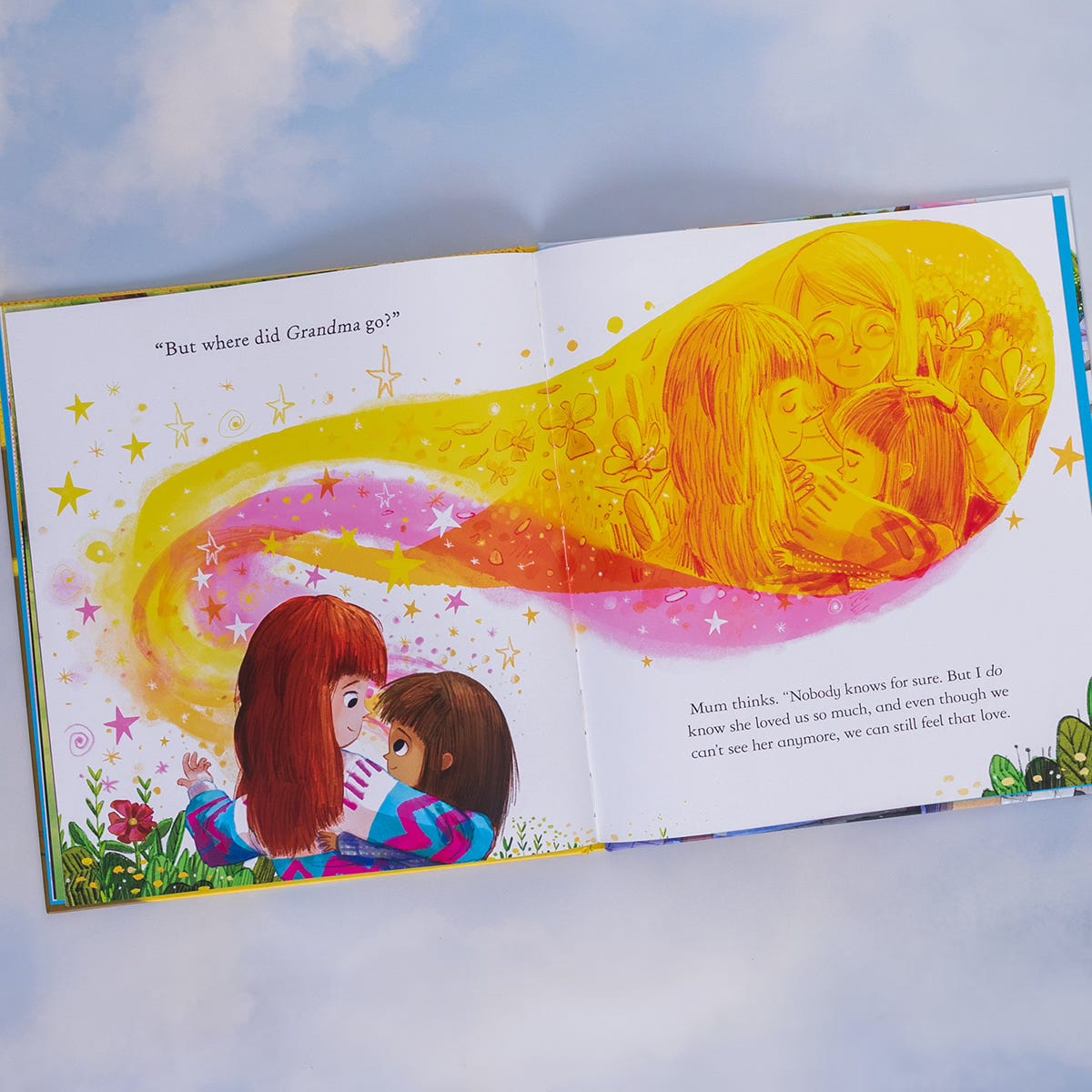
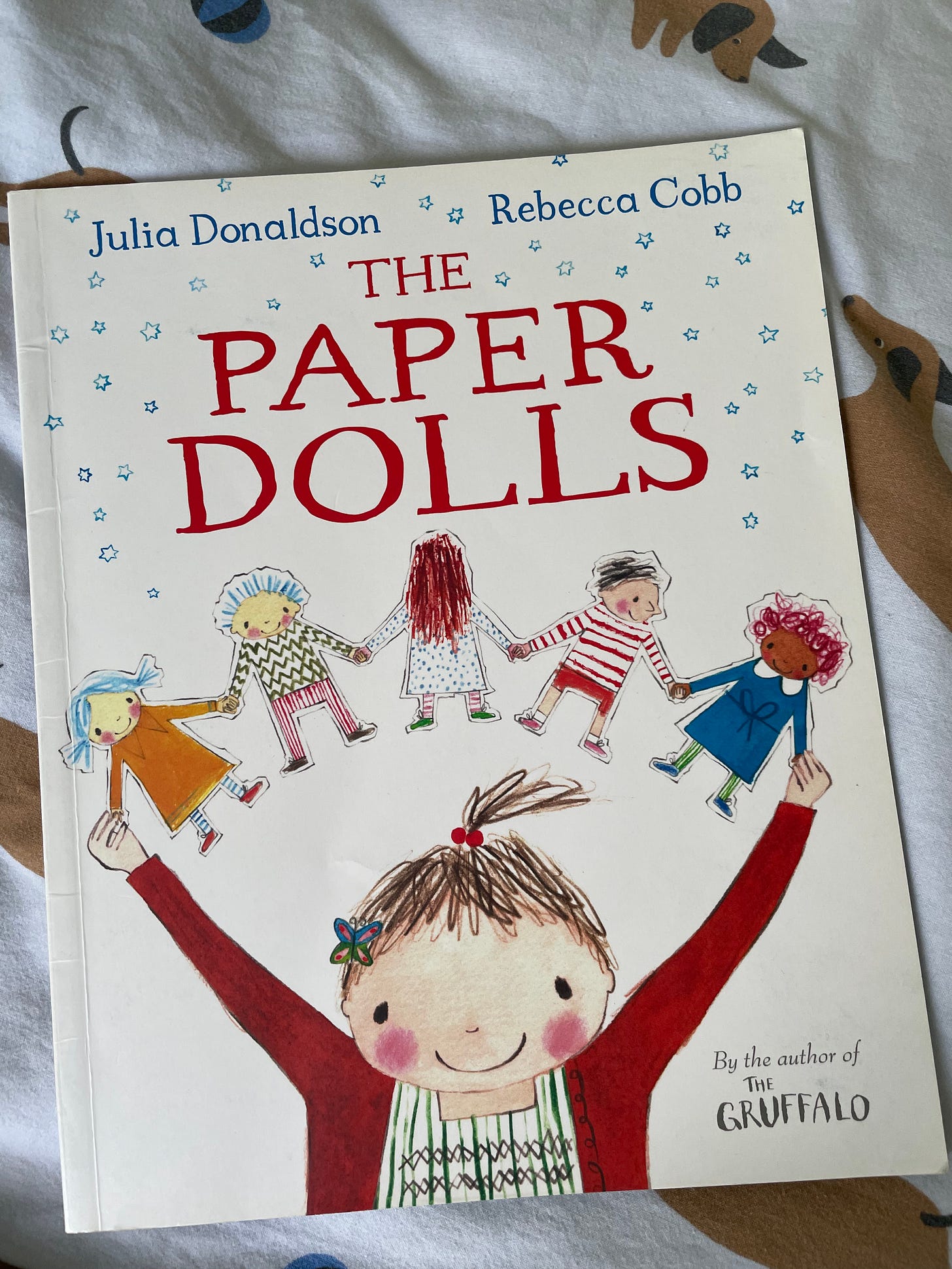
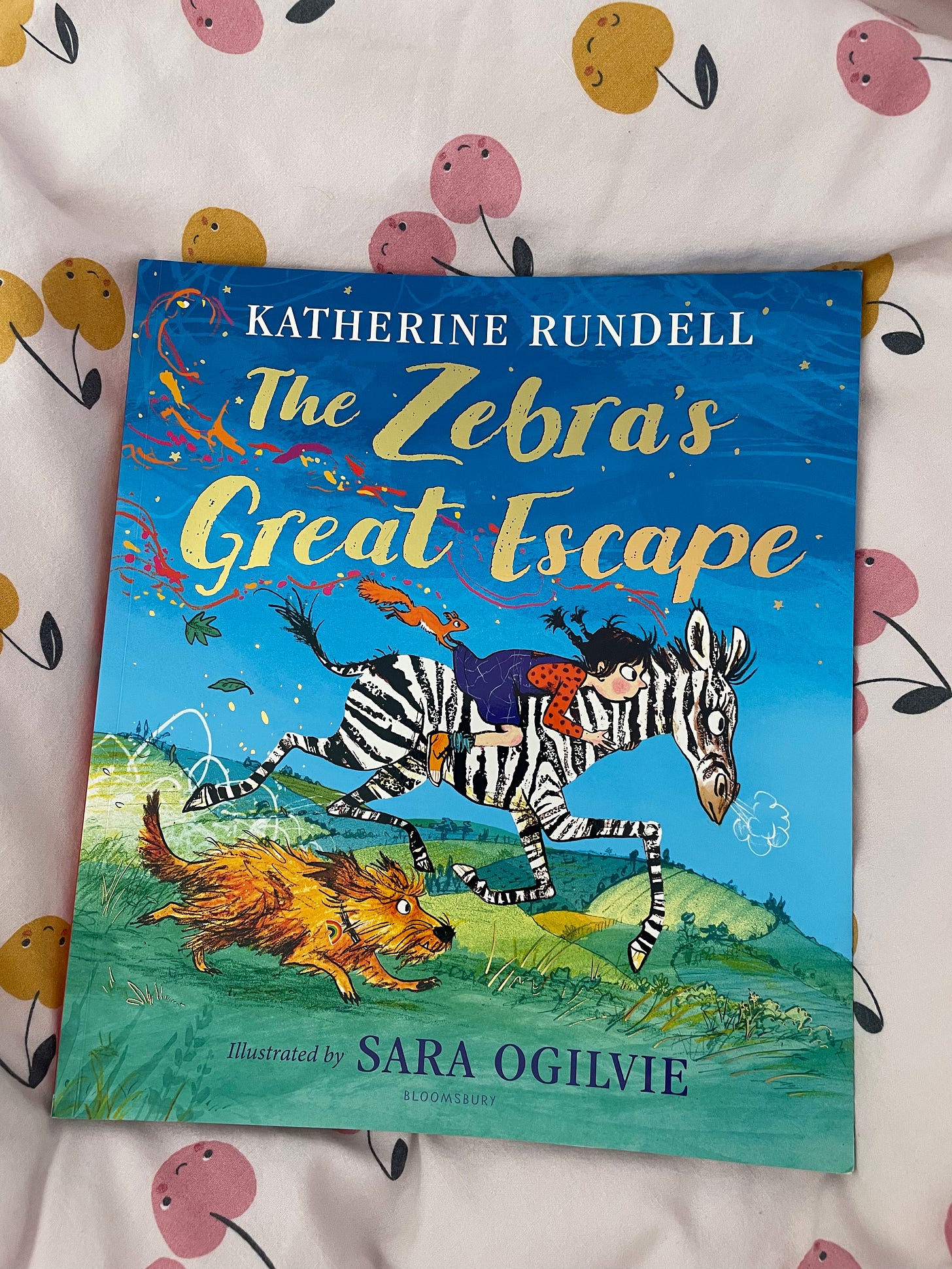
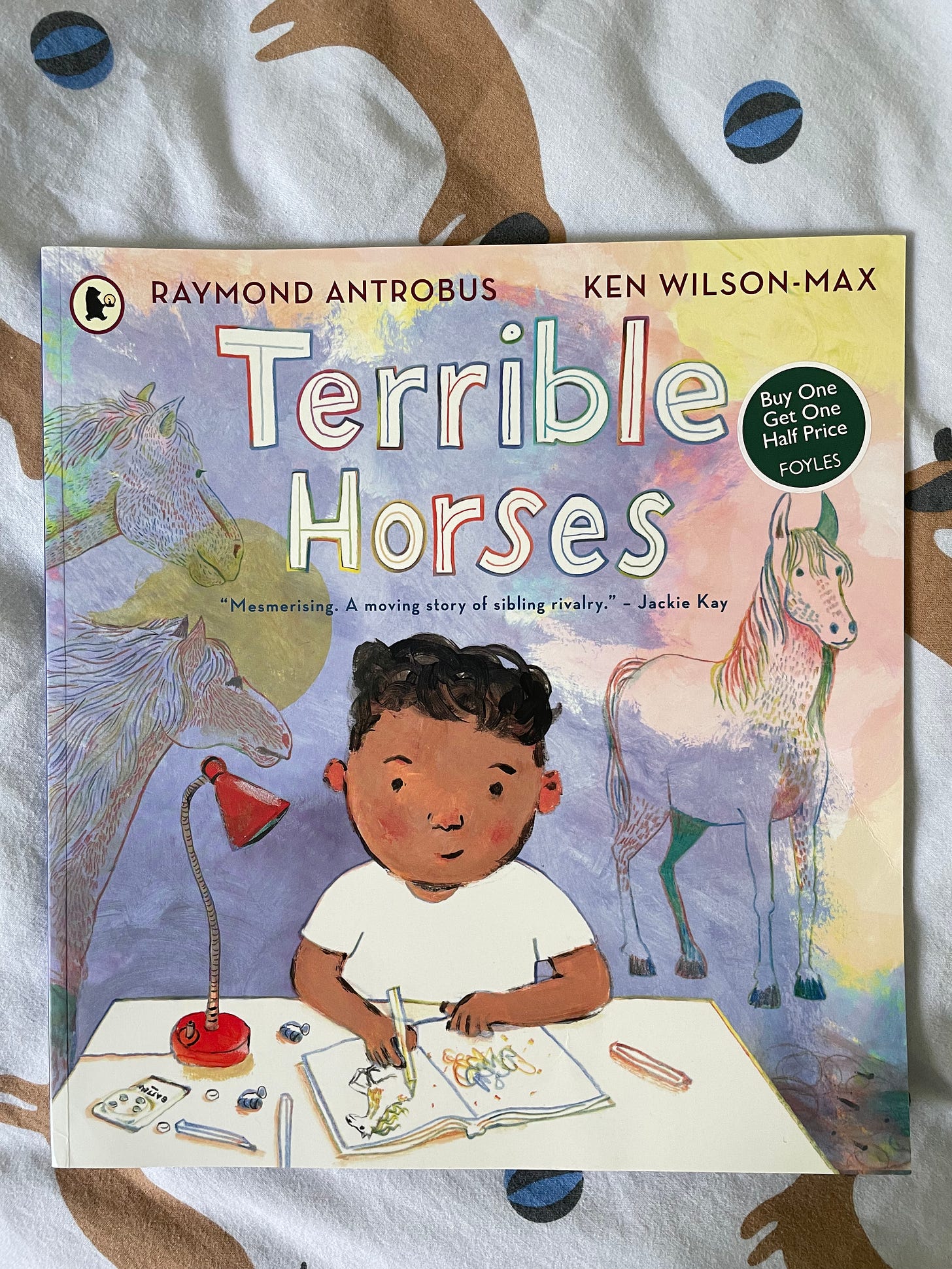
I have a copy of your book here beside me. Wonderful! and you are so lucky to have Tom P as your illustrator. Children need to read about all sorts of life experiences in the safe space a book allows. Good luck with the book - many people will find it so useful.
This looks so wonderful, congratulations!